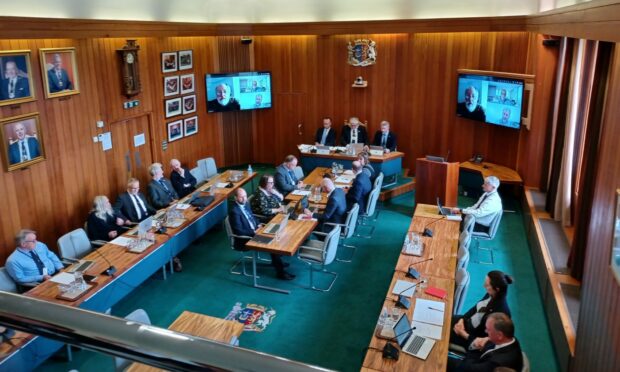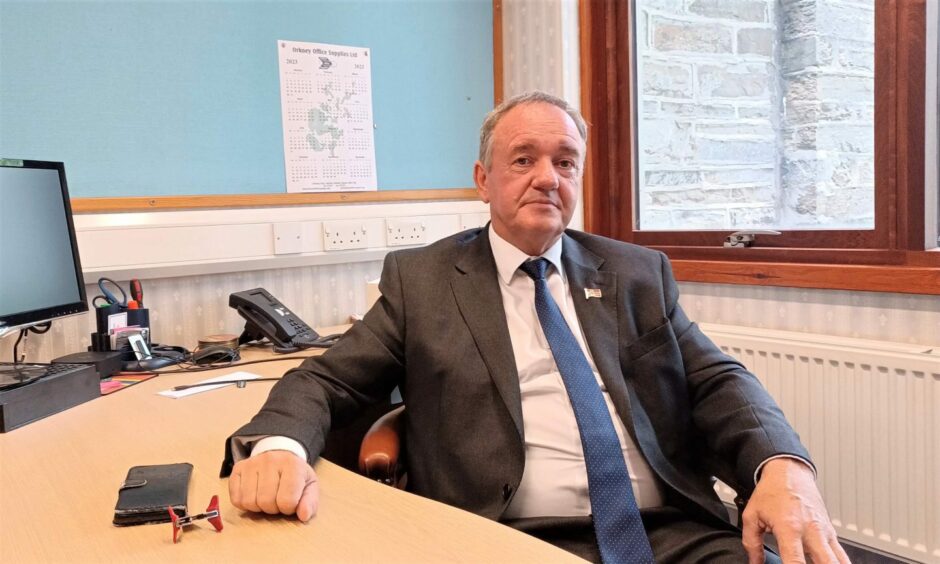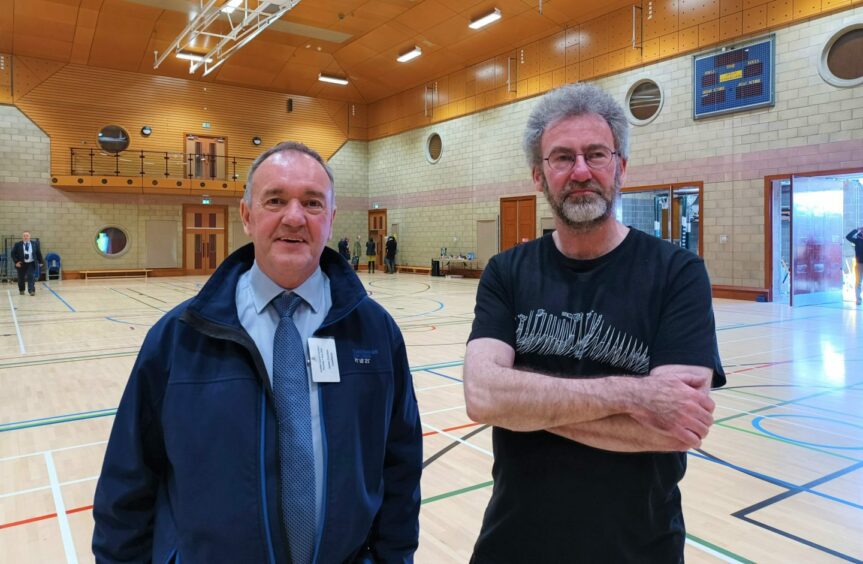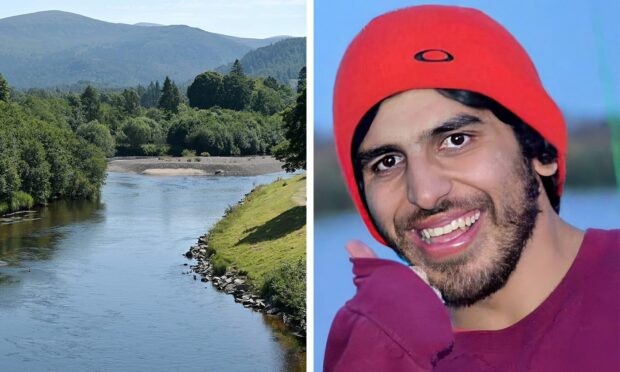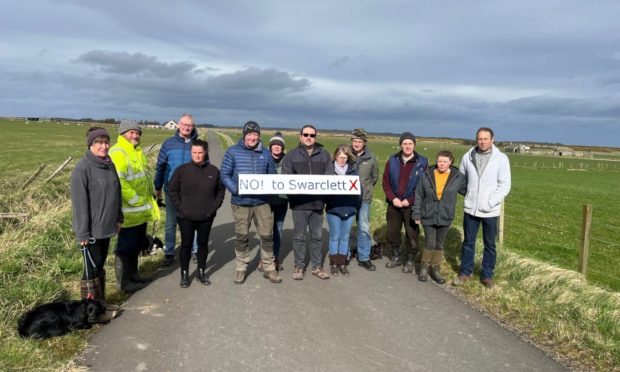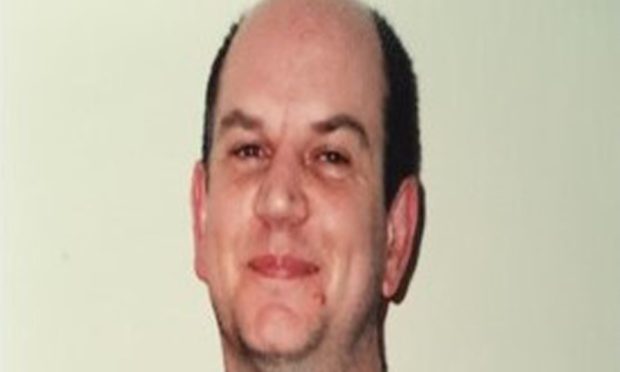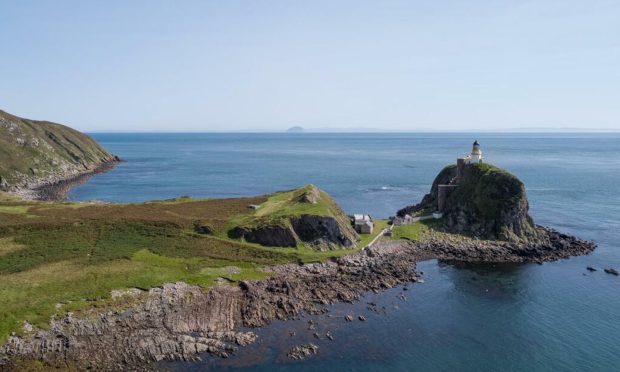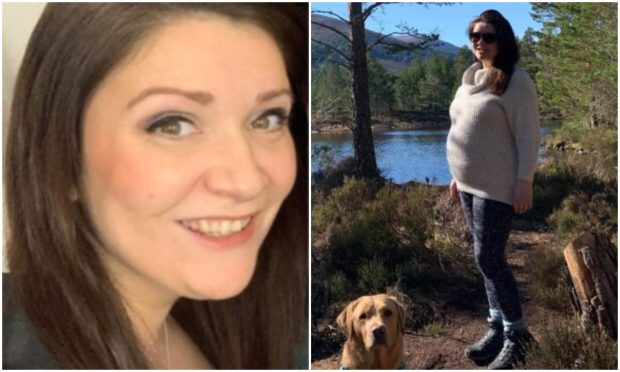Orkney made headlines around the world this week when councillors agreed to explore alternative forms of governance for the islands.
While there has been speculation that the islands wish to become a territory of Norway, council leader James Stockan made it clear that all options will be looked at.
The majority of the 21-strong roster of councillors voted with their leader and agreed that the options should be looked into.
However, after hearing from the leader six councillors still voted against it.
Mr Stockan spoke first at yesterday morning’s meeting, stating the reason for bringing the motion forward in the first place.
He said: “I’ve been a councillor now for 20 years.
‘We have been held down’ says council leader Stockan
“For the last number, I’ve been in negotiation with our governments to get what I believe is an equitable solution or position for the Orkney islands in funding and the opportunities we have in and around these islands to benefit not just us, but to benefit our neighbours, to benefit our nation, and to benefit the world.
“We have been restricted in every conversation. We’ve been held down.
“We all know about the discrimination that we’ve had against this community from governments in the funding settlement we have.”
The council leader went on to point out the challenges the area faces in freight costs, and in securing funding for a new fleet of internal ferries.
He said: “We’ve asked the government for 15 years for them to come and help us, to support us, in making sure we can continue to support our islands.”
Joining Norway is ‘bizarre fantasy’ says Dawson
The first – but not only – voice of dissent was councillor David Dawson.
He cited the experience of Brexit as a reason not to go down the path of separation.
Mr Dawson said: “The options around which this notice of motion revolves range from that which is arguably reasonable, such as crown dependency status, through to the more ambitious, such as becoming a British overseas territory, through to the frankly bizarre fantasy of becoming a self-governing territory of Norway, which is likely to be a pandora’s box of unintended curses on the communities of Orkney.
Mr Dawson added: “If you’re minded to follow this route, let me caution you with one word: Brexit.
“The agonising consequences of that decision continue to haunt every man woman and child in this country, financially and socially.
“Whatever one’s views are as to the state of our relationship with both the Scottish and UK governments, now is not the time to be aggravating it with the talk of separation.”
Dawson stated staff and financial pressures created by investigation
Mr Dawson said “his reasons for being so negative” were rooted in the report from council officers.
This report stated that the investigation into alternative governance would take up a significant amount of time for officers.
The Orkney councillor also said the financial implications are likely to be “colossal.”
The councillor added: “Now is not the time to be asking our officers to undertake what is unquestionably a gigantic investigation.
“If this is a last straw tactic to stimulate more productive dialogue with both governments, if that fails we must be prepared to follow through on the threats made.”
Former convener surprised and disappointed by motion
Another voice of dissent was former council convener Steven Heddle.
He said he was “surprised and disappointed” to see the motion put forward.
Dr Heddle also said councillors had been “disrespected” as they were “kept in the dark” over the motion.
He said: “The implications are enormous.
“It advocates turning our backs on our national governments and the health, education, welfare, national security, transportation, and energy systems they regulate and ensure along with the funding they provide.
“To go it alone according to some model with more drawbacks than benefits and no realistic chance of ever happening.
“It asks us to look at biting the hands that feed us, and to jeopardise the relationships we depend on and should be developing rather than diminishing.
“In 16 years, none of my constituents have suggested to me leaving Scotland is a good idea.”
Other councillors made comments for and against the motion during yesterday’s meeting.
However, ultimately, the initial vote came down to 15 versus six.
Those against the leader’s motion were Steven Heddle, David Dawson, Lindsay Hall, John Ross Scott, Stephen Clackson, and James Moar.
